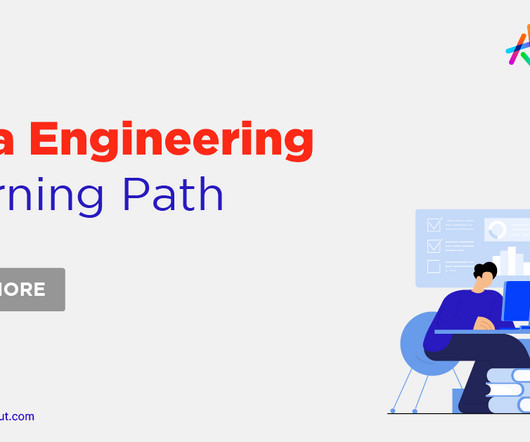How to Become A Data Modeler in 2025?
ProjectPro
JUNE 6, 2025
What does a Data Modeler do? The data modeler builds, implements, and analyzes data architecture and data modeling solutions using relational, dimensional, and NoSQL databases.

ProjectPro
JUNE 6, 2025
What does a Data Modeler do? The data modeler builds, implements, and analyzes data architecture and data modeling solutions using relational, dimensional, and NoSQL databases.

Knowledge Hut
JUNE 23, 2023
Go for the best courses for Data Engineering and polish your big data engineer skills to take up the following responsibilities: You should have a systematic approach to creating and working on various data architectures necessary for storing, processing, and analyzing large amounts of data.
This site is protected by reCAPTCHA and the Google Privacy Policy and Terms of Service apply.

ProjectPro
JUNE 6, 2025
However, this necessitates overcoming the latency problems of querying and processing massive data. SQL MySQL SQL is a relational database. MySQL is a non-relational database. SQL databases scale vertically. MySQL databases scale horizontally. SQL is used to query and operate database systems.

ProjectPro
JUNE 6, 2025
Differentiate between relational and non-relational database management systems. Relational Database Management Systems (RDBMS) Non-relational Database Management Systems Relational Databases primarily work with structured data using SQL (Structured Query Language).

Silectis
JANUARY 3, 2021
If you’re new to data engineering or are a practitioner of a related field, such as data science, or business intelligence, we thought it might be helpful to have a handy list of commonly used terms available for you to get up to speed. Big Data Large volumes of structured or unstructured data.

ProjectPro
JANUARY 31, 2023
However, this necessitates overcoming the latency problems of querying and processing massive data. SQL MySQL SQL is a relational database. MySQL is a non-relational database. SQL databases scale vertically. MySQL databases scale horizontally. SQL is used to query and operate database systems.

ProjectPro
JULY 27, 2021
Differentiate between relational and non-relational database management systems. Relational Database Management Systems (RDBMS) Non-relational Database Management Systems Relational Databases primarily work with structured data using SQL (Structured Query Language).
Let's personalize your content